|
Director Brian Knappenberger and panelists split on balancing privacy vs. free speech rights; unanimous in worry over Trump's anti-press crusade
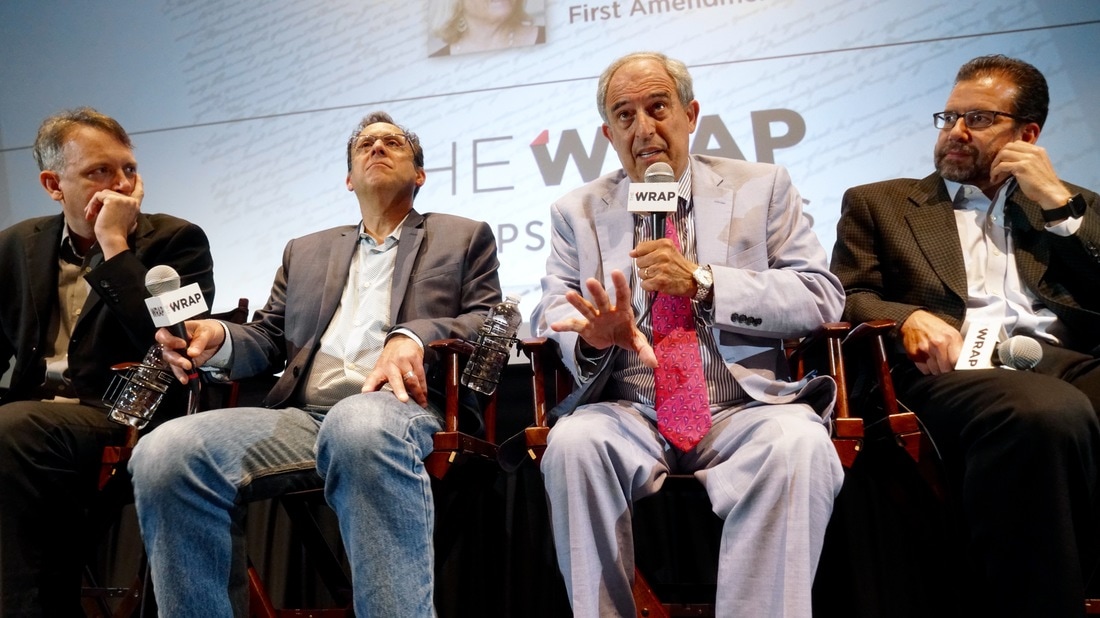
A panel convened by The Wrap discusses First Amendment issues after a screening of Brian Knappenberger's film "Nobody Speak: Trials of the Free Press" in West L.A. on Thursday, July 6, 2017. L-R Knappenberger, David Greene of the Electronic Frontier Foundation, attorneys Lanny Davis and Ricardo Cestero. Photo by Matt Carey
Donald Trump used the first day of his latest trip abroad to once again blast the American news media, chastising both CNN and NBC in what has become a quotidian claim to mistreatment by the press.
His serial attacks on the fourth estate came under debate Thursday night in Los Angeles, following a screening organized by The Wrap of Brian Knappenberger's First Amendment-themed documentary Nobody Speak: Trials of the Free Press. "It's very concerning to hear the daily assault against the news media that comes from the mouth of our president. It comes out of an authoritarian playbook," declared Wrap founder Sharon Waxman, one of five panelists who took part in the discussion (the other four were Knappenberger, First Amendment litigator David Greene, Lanny Davis -- attorney and former special counsel to President Clinton, and Ricardo Cestero, an attorney with expertise in First Amendment issues. The Wrap's First Amendment columnist, Susan Seager, moderated). Donald Trump demonizes people and creates dangerous, violent tendencies in certain extreme-minded... people.
Knappenberger's documentary is a critical reminder that threats to the independence of the news media aren't coming from the White House alone. They seem to have become a predilection of a billionaire boys club of Trump, Silicon Valley entrepreneur Peter Thiel and casino magnate Sheldon Adelson.
At least the first half of Nobody Speak is devoted to the case of Gawker Media, which was forced to close after it lost a $140 mil. civil judgment in a case brought by Terry Bollea, better known as the professional wrestler Hulk Hogan. He sued after Gawker published a clip of a video showing him having sex with the estranged wife of his best friend.
The jury verdict itself might have produced a chilling effect on reportage (of the serious kind, or, in the case of Gawker, the gossip-oriented). More alarming than that was the revelation after the judgment that the litigation had been largely bankrolled by Thiel, who had his own axe to grind against Gawker for outing him as gay years earlier. This idea of secretive financing of litigation in order to silence critics... that worried me.
"This idea of secretive financing of litigation in order to silence critics, I didn't see how that was unique to Gawker no matter what you thought of Gawker. And so that worried me," Knappenberger said, explaining his motivation to pursue the documentary.
Thiel found himself defended by more than one member of the panel. "The First Amendment protects the right to speak anonymously. Litigation funding is lawful. It happens all the time," observed Cestero, a partner at the law firm of Greenberg & Glusker in Los Angeles. "Thiel had a First Amendment right to do whatever lawfully he was allowed to do in order to shut down a publication that he felt that -- in his First Amendment belief -- wasn't worthy of continuing to exist." Several panelists commented that Thiel and his proxies would not have succeeded in their litigation if the jury hearing the case had not agreed Bollea's privacy rights were violated by Gawker. "Every individual's right to privacy is fundamental to our Constitution under the due process clause," noted Davis. "I don't think we should lose sight that Terry Bollea had a right to privacy." Davis, however, hinted he didn't agree with the jury's finding. 'I share the view that no matter how bad Gawker was it should have had First Amendment protection," he said.
A significant portion of Nobody Speak is devoted to the fate of the Las Vegas Review-Journal, a newspaper that earned a reputation for independent-minded coverage of Nevada politics and the state's gaming industry. In late 2015 the paper was sold in a transaction cloaked in secrecy.
It was several intrepid members of the Review-Journal staff who uncovered the buyer's identity: Sheldon Adelson, the casino mogul and prominent Republican donor. According to an NPR report from 2016, "a flood of reporters and editors left the newspaper after it was bought by the Adelson family, citing curtailed editorial freedom, murky business dealings and unethical managers." Waxman called the Gawker/Thiel case and the Las Vegas Review-Journal sale evidence of a worrisome trend. "What concerns me is in a society where we have the rich getting richer and the media fragmented and difficult to sustain as it is that this is the kind of thing that could happen all the time," she commented. "Anybody can decide that they don't like something that was written about them and they're going to be clearly encouraged by Trump and the Sheldon Adelsons of the world secretly buying newspapers... I'm not a lawyer but it doesn't sound like [free] speech. It just sounds like something that rich people get to do."
Of greater concern than a Thiel or Adelson must be a president who has made it a mission to discredit the news media -- or at least those outlets which displease him with their coverage. It should be noted that Trump swore an oath of allegiance to the Constitution, a document that in the Bill of Rights enshrines freedom of the press, recognizing such protection as fundamental to a democracy.
During a news conference in Warsaw on Thursday, Trump reiterated his charge that CNN is guilty of disseminating "fake news." [Full disclosure: I worked as a producer at CNN for over 25 years]. CNN, as is the case with every other journalistic entity, including Fox News, periodically issues retractions and apologies for reporting that is found to be erroneous (Last month, for instance, CNN retracted a report claiming the Senate was investigating ties between a Trump ally and a Russian bank). The president, for his own political purposes, fails to draw a distinction between mistakes -- an inevitability in any human endeavor including journalism -- and "fake news" which implies a willful effort to spread falsehoods. Greene, a frequent lecturer on First Amendment law, said Trump's mantra of "fake news" serves to undermine legitimate news media operations. "It's engendering this distrust in these institutions that are so vital," he commented. "There's media outlets I like and media outlets I dislike, but I want them all to survive because that's the way the system works. Because the more people reporting the better."
As an indication of how fraught any discussion of the news media is in the Trump era, an audience member and apparent Trump fan roared against the panelists.
"I think the First Amendment is under attack. I think it's under attack by sanctimonious snowflakes like you guys!" the man bellowed. He accused CNN of anti-Trump bias, complained of bias in Knappenberger's film (although I don't think the director would disclaim taking a point of view in Nobody Speak). His voice rising with fury, he excoriated "left-wing fascists attacking free speech, preventing conservatives to speak at campuses. That's fascism! You guys support left-wing fascism!" Well before that diatribe, Davis had made a plea for civil discourse between right and left, criticizing the president for personally attacking members of the media whose reporting he dislikes. He contrasted that with previous presidents, all of whom found fault at times with coverage of their administrations. "The difference," Davis maintained, "is Donald Trump demonizes people and creates dangerous, violent tendencies in certain extreme-minded and, I think, fascist-oriented people."
Nobody Speak: Trials of the Free Press includes commentary from First Amendment attorney Floyd Abrams and NPR's David Folkenflik, among others. It premiered at the Sundance Film Festival in January and is now streaming on Netflix.
On Wednesday, Indiewire's Anne Thompson listed the film as one of the early contenders for the Oscars. |
AuthorMatthew Carey is a documentary filmmaker and journalist. His work has appeared on Deadline.com, CNN, CNN.com, TheWrap.com, NBCNews.com and in Documentary magazine. |
- Home
- News
- Videos
-
Galleries
- 2019 Tribeca Film Festival
- Full Frame Documentary Film Festival
- 2019 SXSW Film Festival
- SXSW 2018 Gallery
- 2019 Sundance Film Festival
- Outfest 2018 Photo Gallery
- Outfest 2017
- Sundance 2018 Photos
- 2017 LA Film Festival
- 2017 Cannes Film Festival
- Tribeca Film Festival 2017
- SXSW 2017 Gallery
- 2017 Berlin Film Festival
- Sundance 2017 Gallery
- 2016 Los Angeles Film Festival
- Cannes Film Festival 2016
- SXSW 2016 Gallery
- Berlinale 2016 Gallery
- Sundance 2016 Gallery
- Filmmaker Gallery
- About
- Contact
Proudly powered by Weebly
- Home
- News
- Videos
-
Galleries
- 2019 Tribeca Film Festival
- Full Frame Documentary Film Festival
- 2019 SXSW Film Festival
- SXSW 2018 Gallery
- 2019 Sundance Film Festival
- Outfest 2018 Photo Gallery
- Outfest 2017
- Sundance 2018 Photos
- 2017 LA Film Festival
- 2017 Cannes Film Festival
- Tribeca Film Festival 2017
- SXSW 2017 Gallery
- 2017 Berlin Film Festival
- Sundance 2017 Gallery
- 2016 Los Angeles Film Festival
- Cannes Film Festival 2016
- SXSW 2016 Gallery
- Berlinale 2016 Gallery
- Sundance 2016 Gallery
- Filmmaker Gallery
- About
- Contact

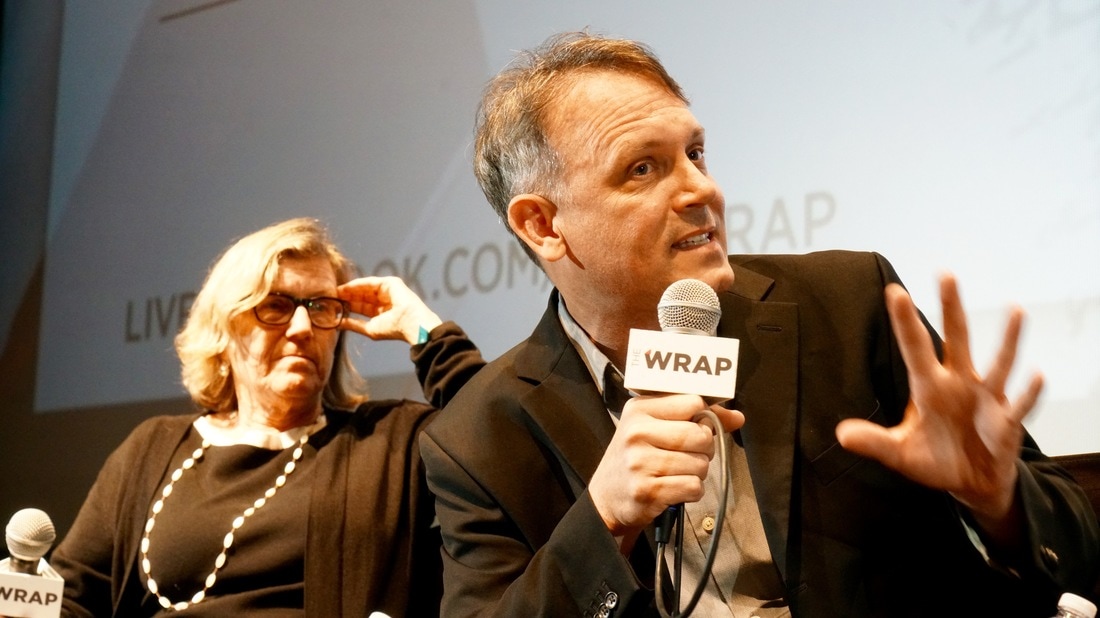
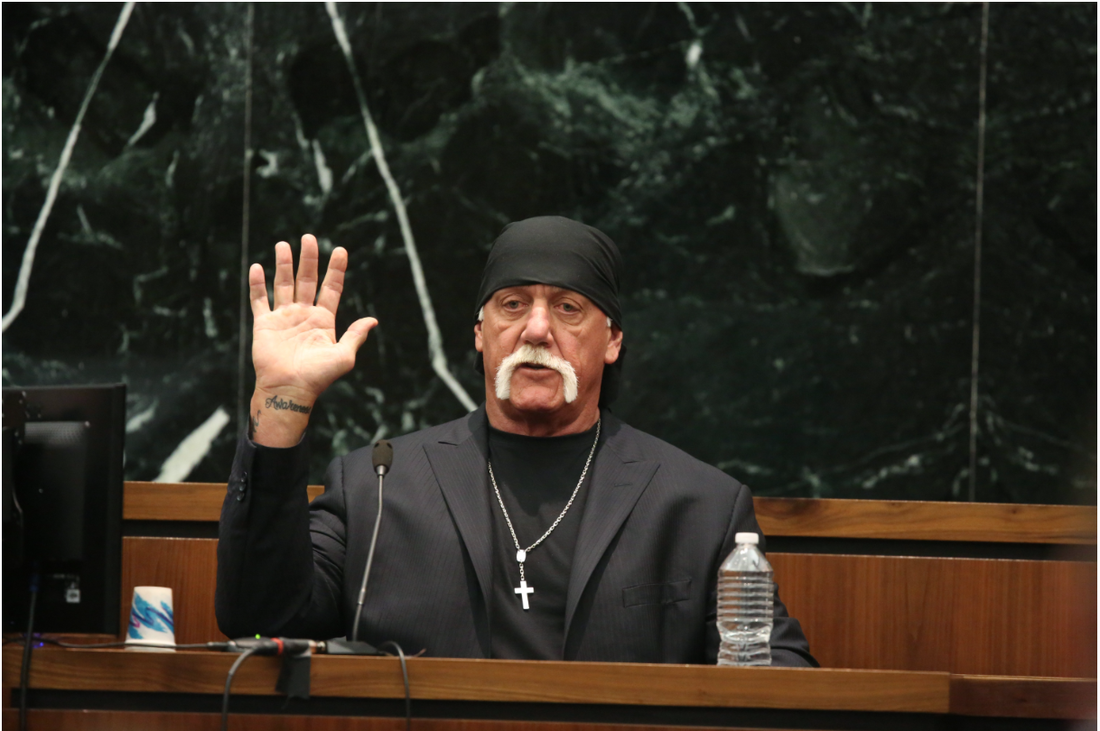
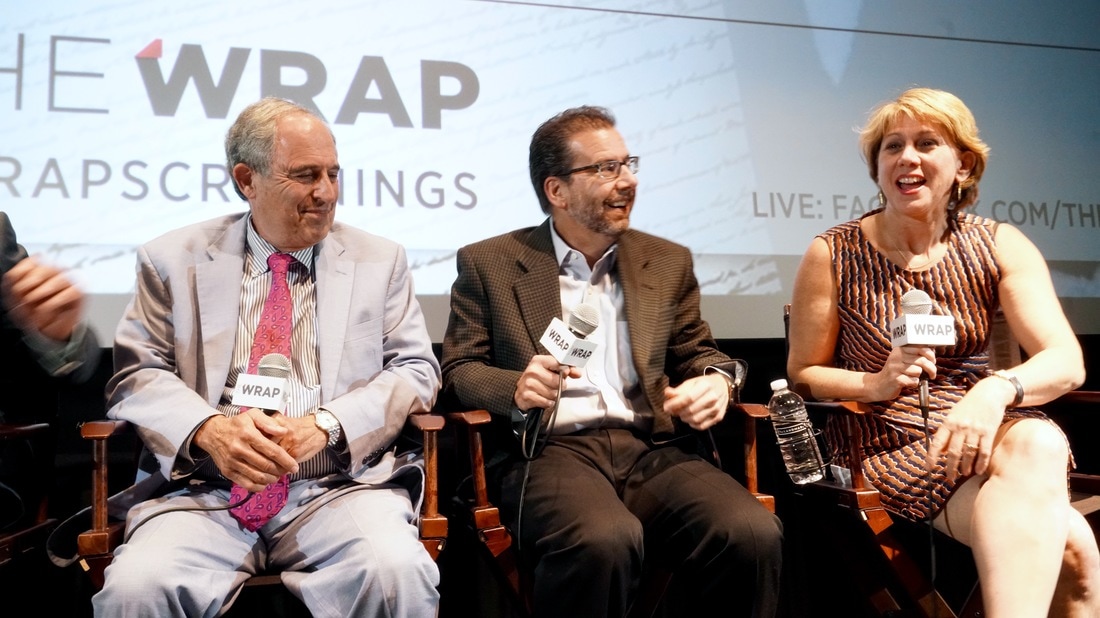
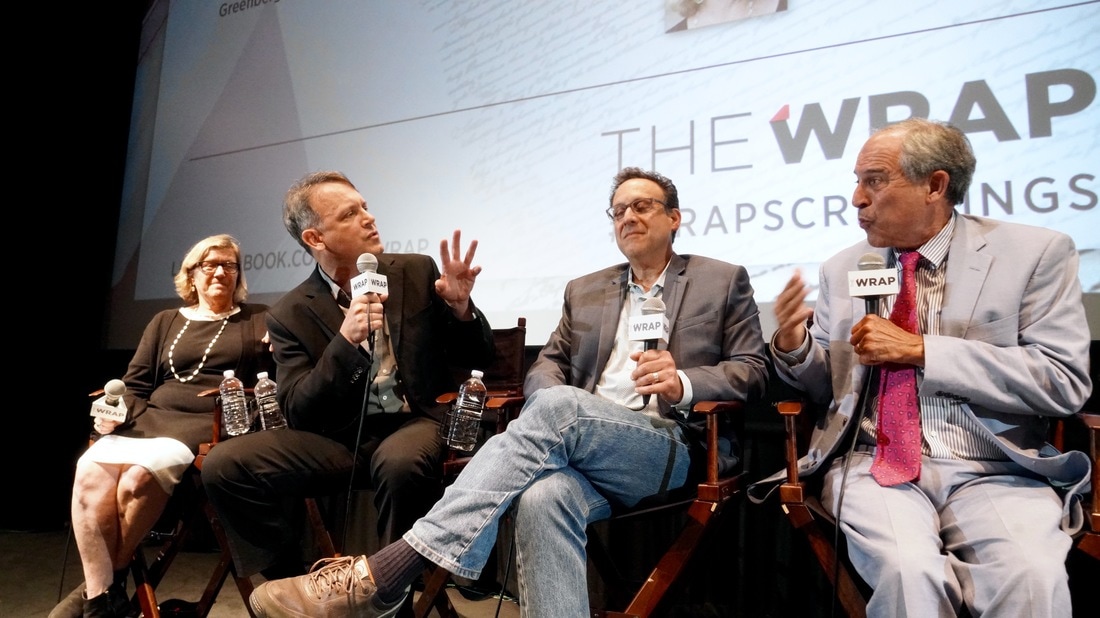
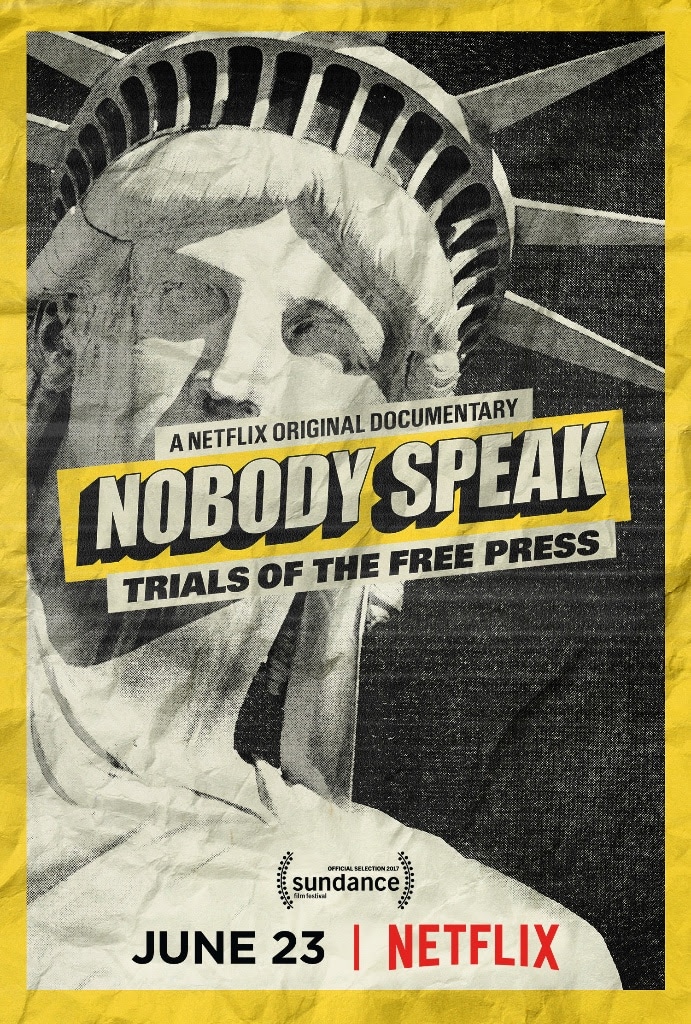
 RSS Feed
RSS Feed